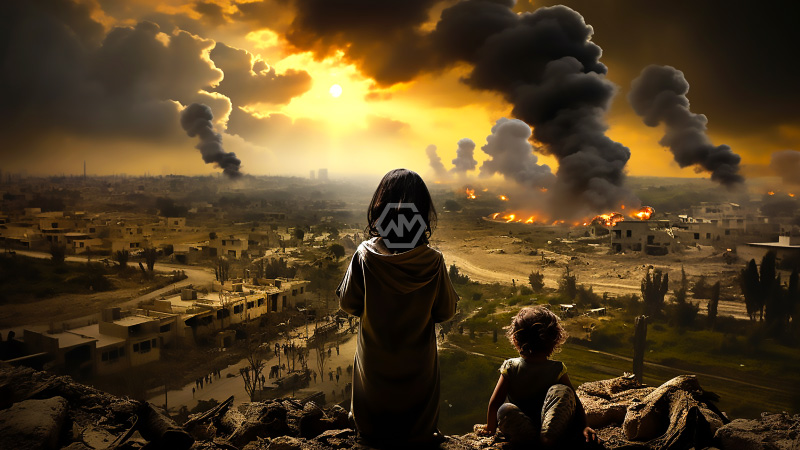- Hezbollah launches over 100 rockets into northern Israel, reaching near Haifa.
- The rocket barrage followed an Israeli airstrike on Beirut, killing 45 people.
- Both sides intensify attacks, with Hezbollah using advanced missiles and Israel striking hundreds of Hezbollah targets.
Tensions between Hezbollah and Israel have escalated sharply after Hezbollah launched over 100 rockets into northern Israel, including areas near Haifa, marking a significant increase in the scope and intensity of attacks.
he rocket strikes, some of which hit civilian areas, were a direct response to an Israeli airstrike in Beirut that claimed 45 lives, including women, children, and a senior Hezbollah commander.
Rocket Barrage and Airstrikes Push Israel-Hezbollah Conflict Toward War
Hezbollah claimed responsibility for launching advanced Fadi 1 and Fadi 2 missiles at strategic Israeli military sites, including the Ramat David airbase. Israel responded by striking over 400 Hezbollah positions in southern Lebanon, targeting what they described as key militant infrastructure. Hospitals and schools in northern Israel have been forced to take safety measures as the rocket barrage brings the civilian population into the line of fire.
In retaliation, the Israeli Defense Forces launched widespread strikes on Hezbollah positions across southern Lebanon. The Israeli military stated that these pre-emptive actions were necessary to prevent further rocket attacks. With air raid sirens sounding in cities across northern Israel, civilians have been forced into shelters. The increased firepower on both sides reflects the growing risk of the conflict spreading further and intensifying.
Israel’s northern cities are facing unprecedented disruptions as hospitals relocate to safer zones and schools suspend activities. Meanwhile, Hezbollah’s rocket campaign has extended far beyond its traditional targets, underscoring the severity of the ongoing confrontation. Israel’s retaliatory measures have similarly expanded, with large-scale airstrikes focused on Hezbollah’s military infrastructure in southern Lebanon.
The conflict, which has simmered for months, appears to be on the brink of a wider war, with international actors closely monitoring the situation. The rapid escalation in both sides’ military responses has heightened fears that the conflict could soon involve other regional players or external powers, with the potential for significant destabilization across the Middle East.
With both Israel and Hezbollah intensifying their military actions, the potential for a broader, more devastating conflict looms. The rapid escalation and use of advanced weaponry highlight the risk of a full-scale war that could have far-reaching consequences for the region.
“In a war, truth is the first casualty.” – Aeschylus



